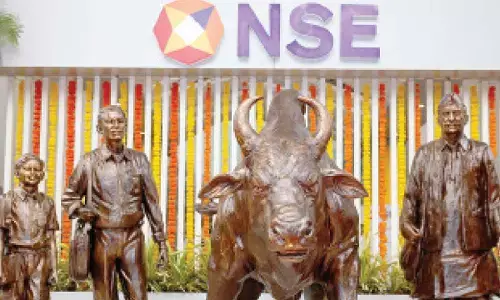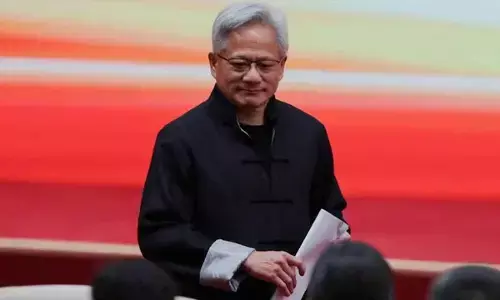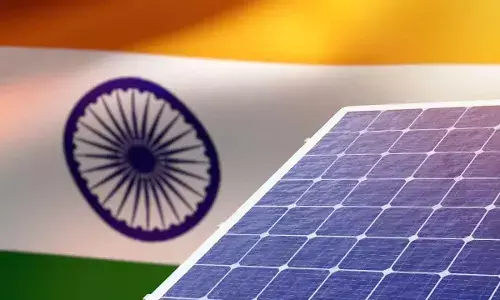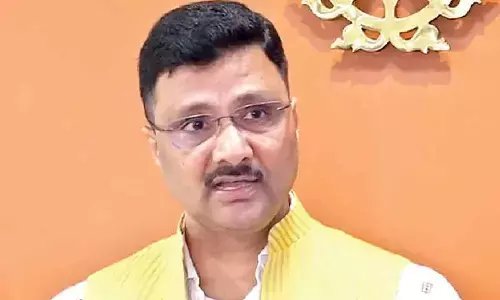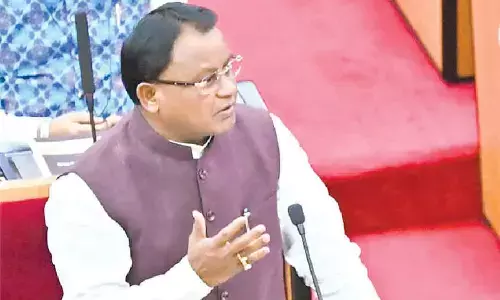Centre's 8-point booster for MSMEs to help them compete globally
Share :

In a booster for micro, small and medium enterprises (MSMEs), the government on Tuesday formulated a detailed package that covers financing, regulatory changes and technology support for them to grow and also compete globally.
New Delhi : In a booster for micro, small and medium enterprises (MSMEs), the government on Tuesday formulated a detailed package that covers financing, regulatory changes and technology support for them to grow and also compete globally.
Among the measures are a credit guarantee scheme for facilitating term loans to MSMEs for purchase of machinery and equipment without collateral or third-party guarantee.
The scheme will operate on pooling of credit risks of such MSMEs, stated Finance Minister Nirmala Sitharaman while presenting the Union Budget 2024-25 in Parliament.
Giving more details, the Finance Minister said that a separately constituted self-financing guarantee fund will provide, to each applicant, a guarantee cover up to Rs 100 crore, while the loan amount may be larger.
The borrower will have to provide an upfront guarantee fee and an annual guarantee fee on the reducing loan balance.
"This Budget provides special attention to MSMEs and manufacturing, particularly labour-intensive manufacturing," she said.
Another measure is to make credit more accessible to MSMEs via a new, independent, and in-house mechanism.
The Finance Minister proposed that public sector banks (PSBs) will build their in-house capability to assess MSMEs for credit, instead of relying on external assessment.
They will also take the lead in developing or getting developed a new credit assessment model, based on the scoring of digital footprints of MSMEs in the economy.
"This is expected to be a significant improvement over the traditional assessment of credit eligibility based only on asset or turnover criteria. That will also cover MSMEs without a formal accounting system," the Finance Minister noted.
The Minister also proposed a new mechanism for facilitating the continuation of bank credit to MSMEs during their stress period.
The Finance Minister proposed to enhance the limit of Mudra loans to Rs 20 lakh from the current Rs 10 lakh for those entrepreneurs who have availed and successfully repaid previous loans under the 'Tarun' category.
For facilitating MSMEs to unlock their working capital by converting their trade receivables into cash, FM Sitharaman proposed to reduce the turnover threshold of buyers for mandatory onboarding on the 'TReDS' platform from Rs 500 crore to Rs 250 crore.
This measure will bring 22 more Central Public Sector Enterprises (CPSEs) and 7,000 more companies onto the platform. Medium enterprises will also be included in the scope of the suppliers.
The Finance Minister proposed that SIDBI will open new branches to expand its reach to serve all major MSME clusters within three years and provide direct credit to them.
With the opening of 24 such branches this year, the service coverage will expand to 168 out of 242 major clusters.
The government also proposed that financial support for setting up 50 multi-product food irradiation units in the MSME sector will be provided.
"Setting up of 100 food quality and safety testing labs with NABL accreditation will be facilitated," the Finance Minister added.
To enable MSMEs and traditional artisans to sell their products in international markets, the Centre proposed that e-commerce export hubs will be set up in public-private-partnership (PPP) mode.



